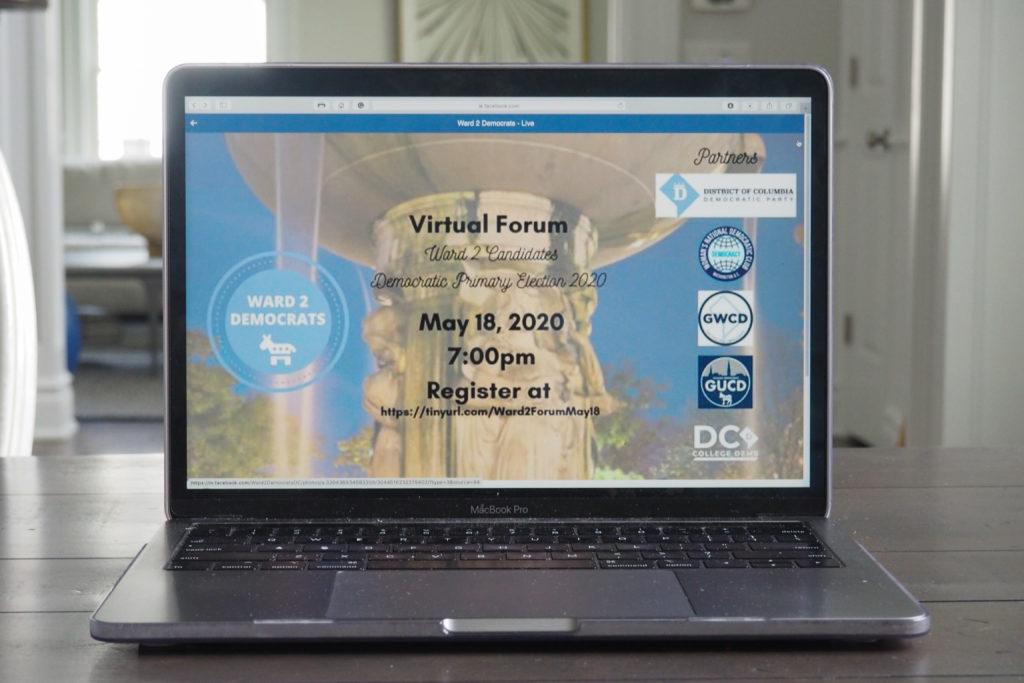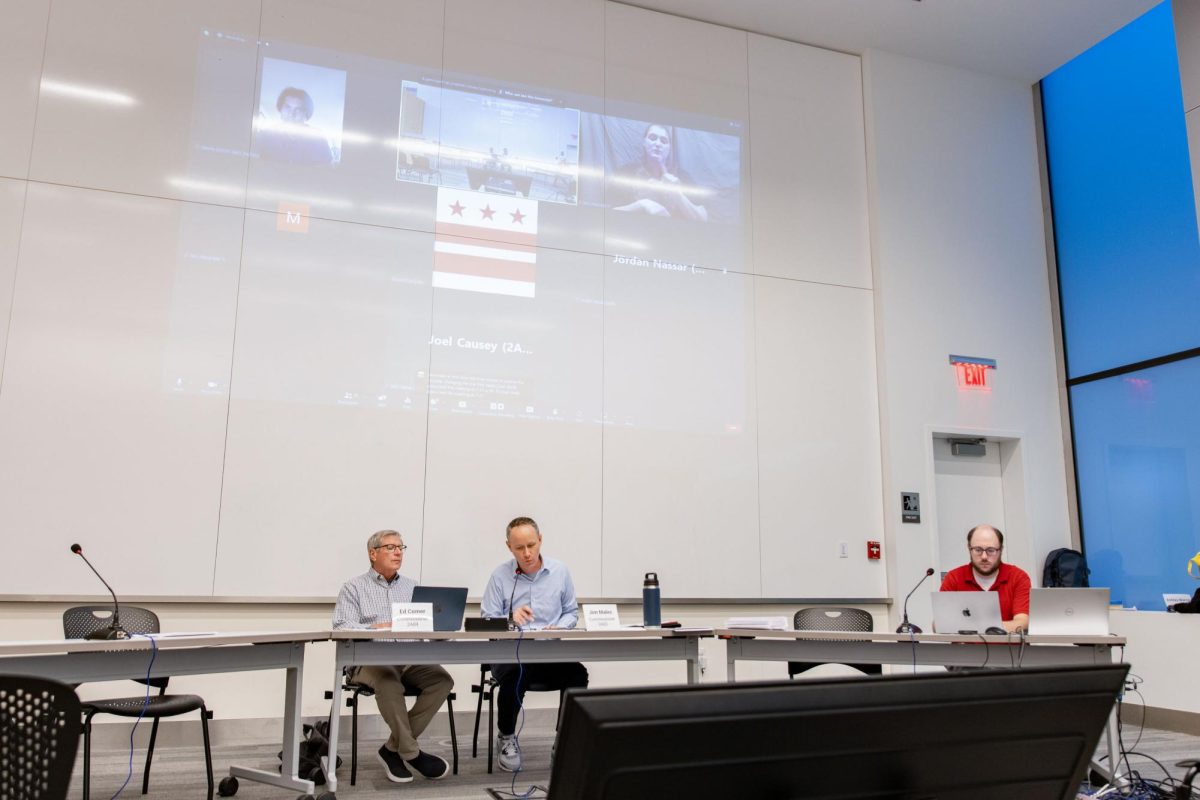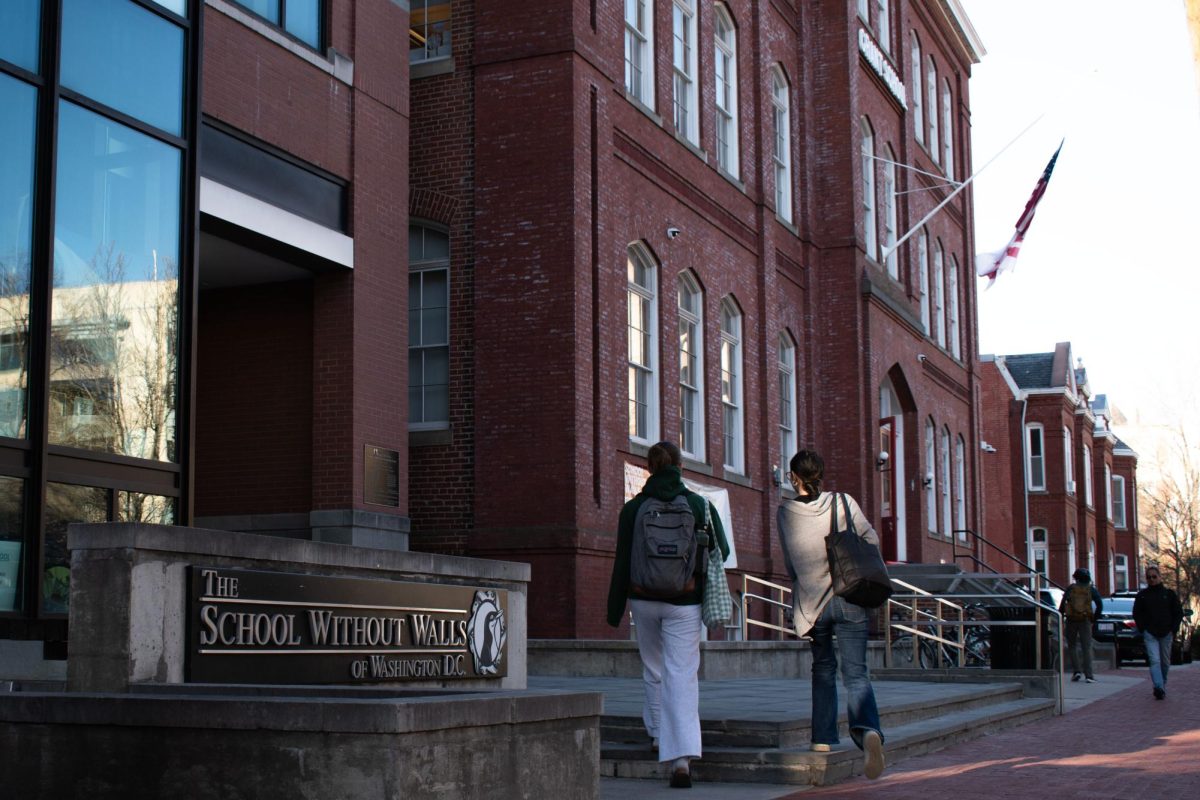Candidates vying for the Ward 2 D.C. Council seat discussed COVID-19 financial relief and different forms of inequity in the District in an online forum Monday.
Washington Post reporter Fenit Nirappil moderated the forum, featuring each of the race’s eight candidates who touted experience and policy plans to push the District past the public health and economic hardships that have plagued residents, workers and businesses throughout the pandemic. The event comes as voters receive their mail-in ballots for the D.C. Democratic primary set for June 2.
GW Democrats organized the forum that was broadcasted via Zoom and Facebook alongside the D.C. Democratic Party, the Women’s National Democratic Club, D.C. College Democrats and Georgetown University Democrats.
COVID-19 relief
Nirappil asked the candidates what they would change about the Fiscal Year 2021 budget proposal that Mayor Muriel Bowser released Monday, which taps into $500 million of federal reserves and freezes pay increases for all public sector workers to compensate for a revenue drop of more than $800 million caused by the pandemic’s economic effects. Candidates agreed that the city must protect workers and small businesses whose financial stability has collapsed in light of closures and furloughs throughout the District.
Brooke Pinto, who has served as the District’s assistant attorney general for policy and legislative affairs, said the budget should include “more direct” relief for small businesses, residents and renters. She said the budget’s hiring freeze weakens government agencies like the Department of Employment Services that will need to increase staffing to process a surge in unemployment insurance claims.
“Our city cannot provide a ‘one size fits all’ approach to a problem that does not have one size,” she said.
Kishan Putta, a member of the Burelith, Georgetown and Hillendale Advisory Neighborhood Commission, said he has spent 15 years working on public health measures in D.C. and six years supporting the Affordable Care Act in which he improved community enrollment for D.C. Health Link, the District’s health insurance exchange system, according to his website. He said this experience will drive him to pull D.C. residents out of the ongoing public health “crisis.”
He said the District needs to prioritize funding early childhood education that spans from newborns to three-year-olds, whose learning experiences he said have been thrown into question while schools and daycare centers remain shuttered.
“Think of our kids first,” he said. “They are really being hurt. We are at risk of losing a generation of kids if their education gap is not restored.”
Jordan Grossman, a former staffer for Barack Obama, said he issued a joint statement two weeks ago with a Ward 7 ANC commissioner and the former director of the D.C. Fiscal Policy Institute – a public policy think tank – that stated the budget should prioritize workers, families and small businesses that the pandemic has harmed.
“Whether it’s child care or affordable housing, these are the things we need to prioritize now for the long term even though we’re in a tight situation,” he said.
Racial and economic inequality
Nirappil asked the candidates to address in their opening statements how “racial and economic inequity” would impact their term as a council member.
Daniel Hernandez, a Microsoft employee who served as a Marine in Afghanistan, said his upbringing in a single-mother household in a working-class neighborhood has led him to hold issues regarding economic inequity in the forefront of his political priorities. He said he would “champion” undocumented workers’ rights while other candidates may try resolving inequity issues “to build a career.”
“As we talk about equity as a focus of this forum or this forum or some of these questions, the core of my desire to run for office is rooted in that,” he said.
Yilin Zhang, who identified herself as a first-generation Asian-American and health care system executive, said combatting D.C.’s homelessness issue with stable housing and better education will be her top priority upon taking office.
“I think it’s very important that housing is a human right,” she said
Candidates also debated an excise tax on sugar-sweetened drinks, which critics have said has potentially harmful effects on low-income communities like wards 7 and 8 because of a lack of cheap food and drink alternatives.
Zhang and Patrick Kennedy, the Foggy Bottom and West End ANC chair, said the tax would fail to improve nutritional standards in communities that can’t afford access to healthier food options.
“It would function as a regressive tax,” Kennedy said. “I don’t think that there are sufficient alternatives to sodas that are available especially in the food deserts of this city in wards 7 and 8.”
Pinto and Grossman backed the tax, arguing it would better “health inequities” that plague the District.
New football stadium
The candidates discussed the installment of a new venue for the Washington Redskins at the Robert F. Kennedy Memorial Stadium, which sits at the edge of the northwest side of the Anacostia River. D.C. officials announced plans last year to demolish the stadium by 2021 because of maintenance costs.
Jack Evans, who resigned his Ward 2 seat after an ethics scandal ended his 29-year term, said he supports the stadium’s renovation, stating it would lead to an economic boost for the District. He said the football team, which now plays in Maryland, would pay for the stadium, but taxpayers would have to help fund infrastructure like surrounding roads and utility installment to accommodate the venue.
“I have a very detailed plan on if the football team were to come back to the city, how that would be financed,” he said.
John Fanning, the chair of the Logan Circle ANC, agreed with Evans and said the renewed venue would produce new jobs for D.C. workers.
“What we have to look about is the whole economic prosperity that comes along with the development of a facility like this, from construction jobs to vendors to you name it,” he said.
Putta and Hernandez said the District should focus on other initiatives like affordable housing that would benefit D.C. residents on a wider scale.







